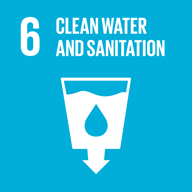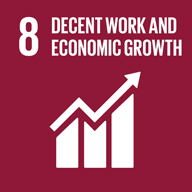Sustainable Development Goals (SDGs)
At SEED, our vision is to see thriving communities and ecosystems across Madagascar. Working together with individuals, communities, organisations and government, we have a wide range of sustainable development and conservation projects, each of which contributes towards the Sustainable Development Goals (SDGS).

What are the SDGs?
In 2015, the United Nations Member States adopted the 2030 Agenda for Sustainable Development, a shared blueprint for peace and prosperity for people and the planet, now and into the future. Key to this are the 17 Sustainable Development Goals (SDGs), which are an urgent call for action, recognising that ending poverty and other deprivations must go hand-in-hand with strategies that improve health and education, reduce inequality, and spur economic growth – all while tackling climate change and working to preserve our oceans and forests.
A World Bank report in 2018 found Madagascar to be at the epicentre of global extreme poverty as one of the two poorest countries on the planet (the other being Democratic Republic of the Congo). Ranking 177/195 on the Human Development Index, Madagascar remains one of the poorest and least developed countries in the world. (UNDP, 2024, Human Development Report 2023-2024)
In this context, our mission to enhance the capacity of individuals, communities, organisations and government in fulfilling sustainable environment, education and development goals is more important than ever.
Which goals do SEED's projects contribute towards?
 |
Goal 1: End poverty in all its forms everywhereReducing poverty is one of the goals of our Rural Livelihoods programme, with projects like our women's embroidery cooperative, Stitch Sainte Luce, and beekeeping livelihoods project, Renitantely. |
 |
Goal 2: End hunger, achieve food security and improved nutrition and promote sustainable agricultureOur edible insect farming project, Sakondry, aims to increase the affordability, accessibility, and stability of sustainable, nutrient-rich protein sources that will directly improve food security across the Anosy region. It will also contribute towards healthier lives, and increase livelihoods opportunities. |
 |
Goal 3: Ensure healthy lives and promote well-being for all at all agesSEED has been working to improve the health and wellbeing of people throughout southern Madagascar for twenty years. Our Community Health programme includes the national sexual and reproductive health and rights (SRHR) project, Safidy, a menstrual hygiene management (MHM) pilot project, our rural WASH & CLTS collaboration with UNICEF Madagascar, and our COVID-19 response. Previous SEED projects targeting health include Votsira (maternal and child health capacity building), Mitao, and our clean water access projects Fatsaka and Tatirano. |
 |
Goal 4: Quality EducationSDG 4 is the primary Sustainable Development Goal contributed towards by our long-running Education Infrastructure programme, which includes school building and repair, providing classroom furniture, and WASH facilities such as latrines, MHM amenities and clean water on site. Project Safidy also contributes towards SDG 4, working with the National Ministry of Education to input SRHR lessons into the High School curriculum across Madagascar, and working in the teacher training colleage to support new teachers in how to deliver these messages. Finally, our beekeeping livelihoods project, Renitantely, provides quality vocational education to beekeepers. |
 |
Goal 5: Achieve gender equality and empower all women and girlsGender equality is central to SEED's work. In our Community Health programme, Project Safidy works to deliver rights-based sexual and reproductive health education to young people across Madagascar, as well as other projects in maternal, reproductive and child healthcare. Women's empowerment is also at the core of our Rural Livelihoods programme, with Project Oratsimba training Women Marine Ambassadors, Project Mahampy supporting female mahampy weavers, female beekeepers in Renitantely and our newly-independent Women's Embroidery Cooperative, Stitch Sainte Luce. |
 |
Goal 6: Ensure access to water and sanitation for allOur Water, Sanitation and Hygiene programme is essential in the Anosy region, where 97% do not have access to proper sanitation. In partnership with UNICEF Madagascar, SEED is supporting more than 190,000 people to improve their WASH knowledge, practices, and services. Previous water and sanitation projects have included a three year urban sanitation initiative in Fort Dauphin, well- building and maintenance, and rainwater harvesting via Project Tatirano, now an independent organisation and one of our implementing partners. |
 |
Goal 8: Promote inclusive and sustainable economic growth, employment and decent work for allSDG 8 promotes decent job creation, entrepreneurship, creativity and innovation, which are all elements of our Rural Livelihoods programme. In Project Mahampy, we are working with traditional female weavers to increase income and promote sustainable resource management. Project Renitantely is working to improve the sustainability and viability of beekeeping as a livelihood, whilst Oratsimba works with fishers to implement adaptive, sustainable fisheries management, and Stitch Sainte Luce has enabled several generations of women to become artisanal entrepeneurs. |
|
|
Goal 12: Ensure sustainable consumption and production patternsSustainable management and use of natural resources is important in the region where SEED works, where people are reliant on the forests for timber and charcoal, the oceans for food and income, and the wetlands for traditional livelihoods. SEED's Project Mahampy is working with weavers to promote sustainable resource management of mahampy reed beds, our reforestation Project, Ala, to protect forest resources, and Oratsimba with marine resources. |
 |
Goal 13: Climate ActionSekoly Maintso forms part of SEED's commitment to becoming carbon neutral by offsetting the carbon dioxide emissions of SEED's school constructions and repairs. A key focus of Sekoly Maintso is raising awareness of climate change and sustainability practices through environmental education sessions. |
 |
Goal 14: Conserve and sustainably use the oceans, seas and marine resourcesProject Oratsimba has been working for several years to encourage community-based, sustainable lobster fishery management in three villages on the southeastern coast of Madagascar. |
 |
Goal 15: Sustainably manage forests, combat desertification, halt and reverse land degradation, halt biodiversity lossSEED's Conservation Programme has as it's mission to conserve the biodiversity, and sustainably manage natural resources, of the Sainte Luce ecosystem in a way that engages and benefits local communities. To this end, we are planting trees to provide reforestation wildlife corridors in Project Ala, monitoring and supporting sustainable management of wetlands in Project Mahampy. Our Environmental Conservation Programme also includes extensive biodiversity research within the SEED Conservation Research Programme, chameleon and palms research, and community conservation efforts with Project Rufus, targeting Madagascar's threatened flying fox population. |

